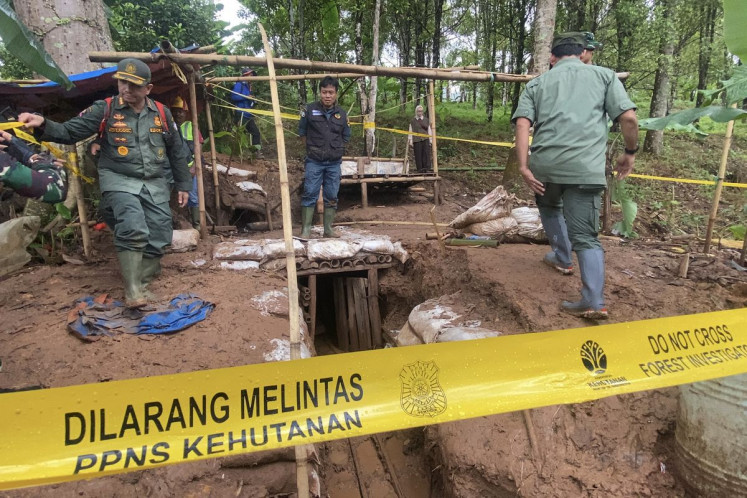Popular Reads
Top Results
Can't find what you're looking for?
View all search resultsPopular Reads
Top Results
Can't find what you're looking for?
View all search resultsJudiciary told to use shifting burden of proof in all courts
Legal experts have called on the judiciary to use the principle of shifting the burden of proof in all courts, especially for trials of corruption and money laundering
Change text size
Gift Premium Articles
to Anyone
L
egal experts have called on the judiciary to use the principle of shifting the burden of proof in all courts, especially for trials of corruption and money laundering.
Currently, the Corruption Eradication Commission (KPK) shifts the burden of proof in corruption court trials by requiring that defendants prove their innocence rather than solely obligating prosecutors to produce evidence of guilt on the basis of the Corruption Law No. 20/2001 and Money Laundering Law No. 25/2003.
Article 37 of the Corruption Law, and articles 77 and 78 of the Money Laundering Law are not generally made use of in the court system.
Yunus Husein, legal expert in the Presidential Working Unit for the Supervision and Management of Development, said that the principle had been an effective tool in delivering justice.
'The principle has been successful in putting the corrupt behind bars, as in the cases of former tax officers Bahasyim Assifie and Yudi Hermawan, who were found guilty because they could not prove that their assets were legitimately obtained' he said.
Bahasyim was sentenced to 12 years in prison and fined Rp 1 billion (US$100,756) (or three months in prison) by the Supreme Court last year, while Yudi was sentenced to eight years in prison by Karawang District Court in 2009.
President Susilo Bambang Yudhoyono issued Presidential Instruction No. 2/2011, which urges prosecutors to shift the burden of proof during trials, particularly to accelerate the eradication of the tax mafia.
Activists have criticized the principle as it has the potential to violate basic human rights.
A number of regulations did not require the principle, Yunus said.
There are several principles in the criminal justice system inconsistent with the burden shifting, such as the presumption of innocence (defendants are innocent unless proven guilty), the non-self incrimination principle (allowing defendants to refrain from making damaging statements about their own activities) and the right to
remain silent.
Article 66 of the Criminal Code Procedure (KUHAP) stipulates that defendants are exempted from the obligation to affirmatively prove a fact.
Yunus contends the assumption is invalid because the principle basically gives the right to defendants to prove that they were not wrong as accused by prosecutors.
He also argued that the prosecutors could refer to the latest regulations, including the money laundering law and the graft law and not necessarily the KUHAP.
A researcher with the Indonesian Corruption Watch, Febri Diansyah, said that shifting the burden of proof could be the breakthrough in eradicating corruption.
'We think that there have to be more trials which impose this principle to arrest more corruptors,' he said.
Spokesman for the Attorney General's Office (AGO), Adi Toegarisman, questioned the efficacy of the principle, especially if both prosecutors and defendants brought strong evidence and if the defendant was a corporation. (koi)










